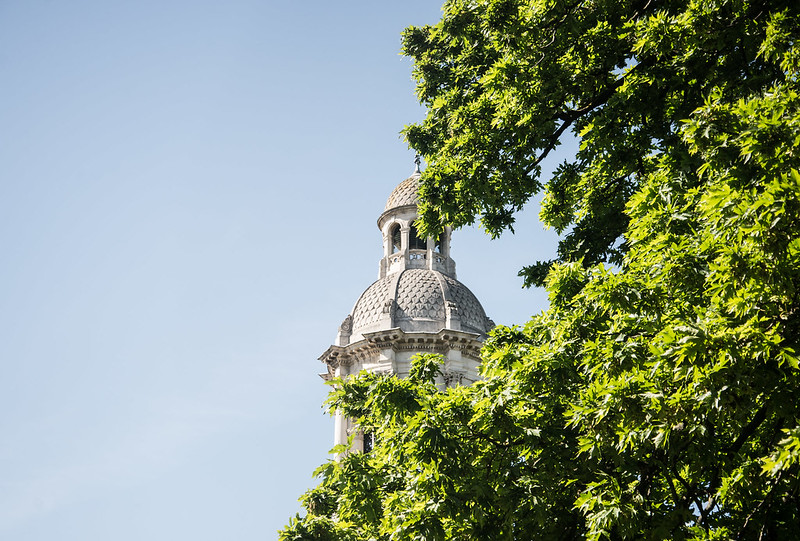Experience, even the worst experience, teaches us – so what are the lessons to be learned by higher education from the coronavirus?
The first lesson I draw from the pandemic is the insight it has given us into the deep wells of community spirit that exists in Irish society, demonstrated through the many acts of kindness of people to neighbours, family and strangers. Higher education is a good example of where staff, almost overnight, responded to the task at hand with commitment, energy and innovation. And, to their great credit, they continue with this effort today.
A second lesson leads on from that. For years, online and blended learning have been talked about in higher education, but with only limited success. The pandemic has swept away the reluctance to engage with this model of learning, for both staff and students. Online learning is clearly a viable and effective model of teaching and learning. But there are caveats.
Much of what is currently being done is effectively putting standard lectures online. This is not enough beyond this crisis response. Effective forms of blended and online teaching and learning that enhance the student experience need very careful development, resourcing and staff training. But we have learned that the basics can be done comprehensively. Increased use of technology in teaching and learning is here to stay, so let’s move on from there.
Increased use of technology in teaching and learning is here to stay, so let’s move on from there
Even the best of online learning however is no panacea. For some time, education policymakers and funders have dreamed about the widespread use of technology to reach a greater number of students at a lower cost. MOOCs enjoyed a place in their sun for a while. What we can learn from experience is that the use of technology and virtual learning environments is necessary but has limitations.
For instance, there is a hugely important social dimension to higher education that technology alone cannot address. Through clubs and societies, college bars and cafes and casual meetings on campus, students learn important life skills. They learn of other cultures, how to navigate differences of opinion and world view, how to value diversity. These skills – learned almost by osmosis – are crucially important for personal development and for the creation of societies driven by respect for diversity and the principles of liberal democracy. This is more important now than in any recent time as the world falls victim to the divisiveness and disrespect for the rule of law promulgated by populists of left and right.
The fact that teachers have assessed the performance of their students as a replacement for the leaving certificate examination has useful lessons too. We have, on this occasion, replaced a high-stakes, high-pressure test with a sophisticated assessment of the overall performance of students by their teachers. Does this have to be an exception? Apart from its damaging effect on the mental health of students, especially young students, the leaving certificate – with its role as gatekeeper to higher education – perpetuates social and economic privilege in many ways. It was said that assessment by teachers couldn’t be done. We’ve learned that it can be. But again, a caution.
What we can learn from experience is that the use of technology and virtual learning environments is necessary but has limitations
Much needs to be done before a system of school-based assessment can replace the leaving certificate, not least in the training of teachers in new, innovative forms of assessment. We also need to develop a method of ensuring the kind of fairness and consistency in marking across all schools that the leaving certificate provides. But the genie of school-based assessment is out of the bottle and shouldn’t be put back in. Higher education institutions have a role to play through their education research and in an openness, as demonstrated this year, to embrace other forms of qualifying criteria for entry to college.
The pandemic has also taught universities and other colleges the dangers inherent in their internationalisation policies. For too long, and to too great an extent, those policies have been aimed at increasing revenue – understandable at a time of declining public investment. But given the reluctance of students and their parents to take risks during the pandemic, the downsides to this approach are all too apparent. International students will continue to be an important part of the student population and should be. But in future, we must avoid treating them merely as “cash cows” and embrace a wider view of internationalisation and its role in promoting cultural diversity, the values of liberal democracies and more people-centred globalisation.
We have learned too of the value of scientific research and of collaboration among researchers as we race to find a vaccine. But we have also brought home to us that there are virulent anti-science and anti-knowledge forces abroad in our societies. Education is the key bulwark against them. The higher education and research sector is front and centre in this struggle between respect for knowledge and ignorance that is often wilful.
Tom Boland was CEO of the Higher Education Authority from 2004 to 2016 and is now a partner in BH Associates, Education Consultants.







